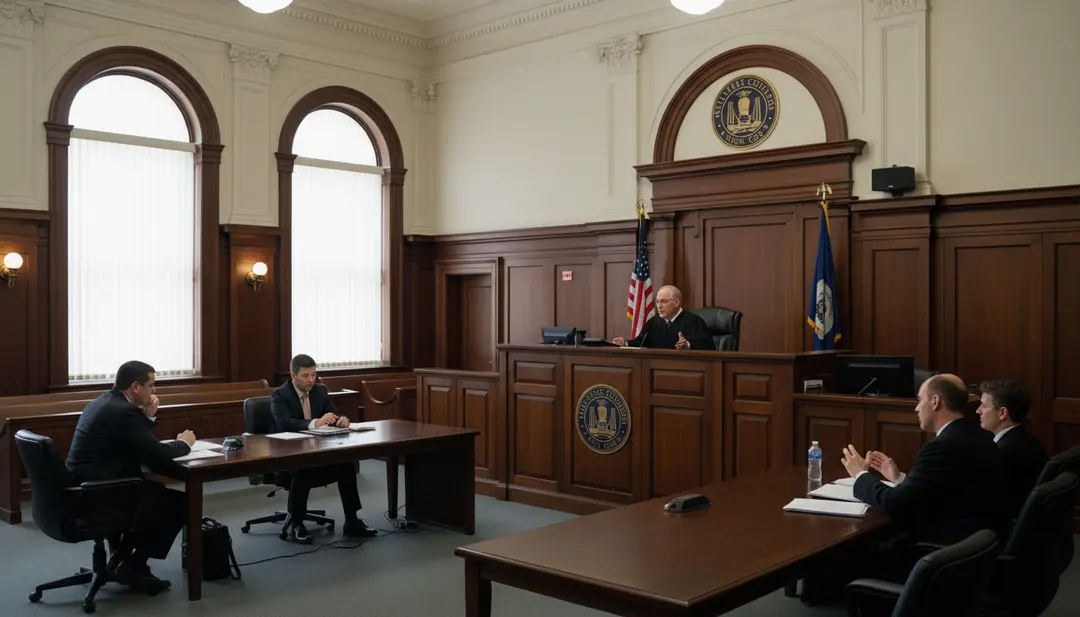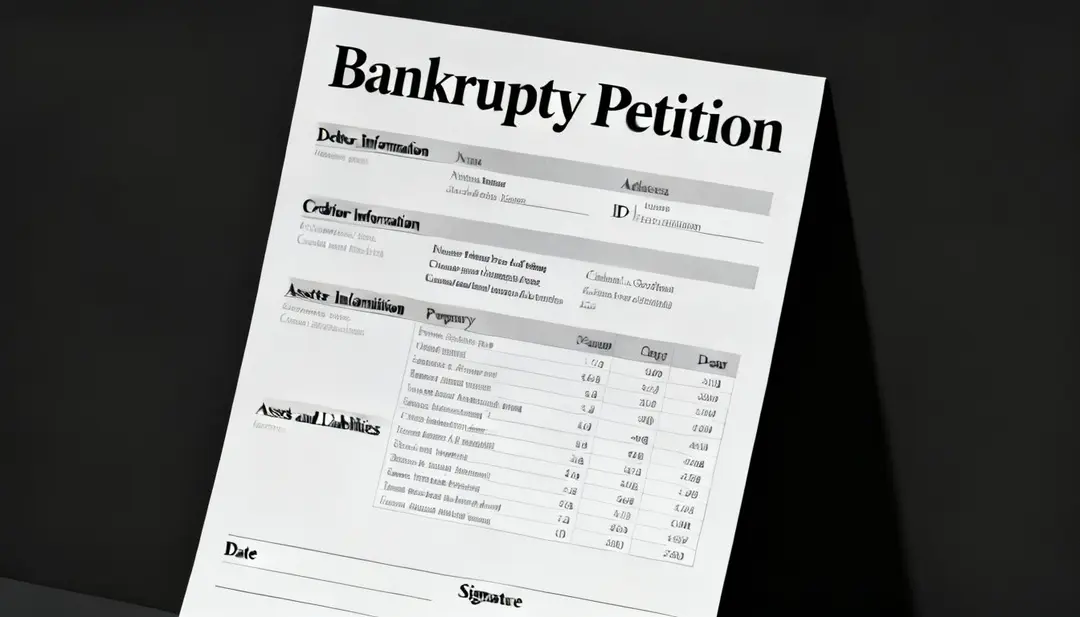Changing a management company can feel routine for some HOAs, but not keeping Arizona Corporation Commission records up-to-date can have serious consequences. Arizona law expects HOAs to report certain changes, and when you switch management companies, the records you keep with the AZCC matter—a lot. An incorrect filing or outdated information risks fines, missed notices, or legal confusion that can frustrate your board, managers, and even homeowners.
You are responsible for making sure your HOA’s business records always reflect the current reality. Take this update seriously, especially if you rely on your management company to handle corporate filings on your behalf. Correct and prompt recordkeeping is not just smart—it’s required by state law. This post explains exactly what needs to be changed, why it matters, and when to act to keep your community in compliance.
With guidance from an Arizona HOA Attorney, or a local resource like a Phoenix HOA Lawyer or Tucson HOA Attorney, your association can avoid common pitfalls and protect its good standing. If you want to build even stronger transparency and trust, you can also review our Arizona HOA Transparency and Trust Guide for more strategies.
Why Arizona HOAs Must Update AZCC Records After a Management Company Change
Updating your Arizona Corporation Commission (AZCC) records after switching management companies is more than a checkbox on your to-do list. Keeping these records current helps your association stay in the good graces of the state, protects your board from legal pitfalls, and gives you peace of mind that your HOA is operating above board. If you let this task slide, penalties and real-world problems can pile up fast—even for well-intentioned boards. Here’s what’s truly at stake when an Arizona HOA changes management and fails to update the official records.
Maintaining Good Standing with the Arizona Corporation Commission
Your HOA’s registration with the AZCC is a foundation for your ability to function as a legal corporate entity. Each time your management company changes, the contact information, statutory agent, or executive details may change too. If you don’t update records right away, your association risks falling out of good standing with the state.
Losing good standing isn’t just a technical slip. It can mean:
- The board’s authority might be questioned when taking any official action, especially when entering contracts or initiating collections.
- Your HOA could lose access to state courts for collections or enforcement cases.
- Lenders and insurers might hesitate to work with your community, making financing and insurance renewals a hassle.
Letting records get stale can frustrate homeowners, hamstring your board’s authority, and attract problems that could have been avoided. Taking the time to update your AZCC information ensures your HOA keeps its legal protections and stays qualified to do business across Arizona. If you want to see how solid recordkeeping supports trust with homeowners, review the strategies in our Arizona HOA Transparency and Trust Guide.
Potential Penalties, Fines, and Legal Risks
Skipping this step can cost you—literally. Arizona law gives the state power to impose fines and other penalties when entities don’t correct their records or respond to AZCC requests. If you miss these updates after a management company transition, your HOA may face:
- Monetary fines for late or failed filings
- Administrative dissolution, which means the state can revoke your corporate status
- Barriers to collections or legal actions, since a dissolved entity loses standing in Arizona courts
- Loss of insurance coverage or lender confidence, if your corporate status can’t be verified
Once dissolved, your HOA could be on the hook for personal liability if directors keep conducting business. Getting reinstated after dissolution adds unnecessary expenses, delays, and confusion for your board and community members.
If you need guidance on managing risk or enforcing requirements, an Arizona HOA law firm’s tips can streamline your process and protect your bottom line. You can also connect directly with experts like a Phoenix HOA Lawyer or Tucson HOA Attorney to help you keep everything compliant from day one.
Staying current keeps your community moving forward—without the headaches of avoidable penalties or red tape.
Steps to Update AZCC Records After a Management Company Change
After a management company transition, updating your Arizona Corporation Commission (AZCC) records may seem minor but it has a direct impact on your HOA’s authority and daily business. This process safeguards your association’s legal standing, ensures the board gets important state notices, and prevents confusion down the road. Failing to act on record updates brings risk, but a clear, organized approach keeps everything running smoothly. Here’s how your board or management team can efficiently tackle this essential compliance task.
Verifying Current Information with the AZCC
Start by checking the official details the AZCC has on file for your HOA. Go to the AZCC’s website and search for your association’s corporate record. Confirm key facts like:
- The listed statutory agent
- The HOA’s mailing address
- Current board officers and directors
Mistakes are common, so review every field carefully. Outdated information could mean your community misses key deadlines or, worse, state notices about problems. By verifying first, you avoid expensive surprises later and only update what’s needed.
Communicating With the HOA Board and Management
Clear, timely communication sets a solid foundation for record updates. To keep things organized:
- Document every step you take—emails, calls, meeting notes
- Keep the HOA board looped in and notify all board members of plans to update AZCC records
- If your manager is changing, clarify who is responsible for each filing or task
This isn’t just about paperwork; it’s about building trust and preventing disputes down the road. Open records help the board stay in control and make hand-offs smoother between management teams.
Consulting Governing Documents for Procedural Guidance
Before you file anything with the state, review your association’s CC&Rs, bylaws, and any board resolutions. Most HOAs spell out:
- Who is responsible for state filings (the secretary, president, or even management)
- Required approval procedures for changes
- Timelines for filing after an organizational change
If the process isn’t clear, ask for help from an Arizona HOA Attorney who knows the details. Following your documents to the letter keeps your association protected and avoids pushback from the community. You can learn more about general legal governance approaches by checking out the About AZ HOA Law page.
Filing the Required AZCC Forms or Updates
Once you know what to change and who should file, gather the right forms. For most HOAs, you’ll need to use the AZCC’s Officer/Director/Shareholder Change form. Additionally, if your statutory agent changes (for example, switching from your management company to a board member or a new agent), you must file an updated statement with the AZCC right away.
Key points to keep in mind:
- Double-check who signs the forms—generally, an officer or board member needs to authorize the change
- Use the most current versions of AZCC forms to avoid processing delays
- Submit filings as soon as you can following a management company transition
When in doubt about who should file or how to complete the documents, reach out to a Phoenix HOA Lawyer or Tucson HOA Attorney for tailored guidance. Flat-rate legal counsel from a specialized firm can often make the process quicker and less stressful for everyone involved.
Taking these steps not only keeps your HOA compliant, it reinforces a strong, organized foundation for your community—making it easier to handle future changes and build lasting trust with your homeowners.
When Problems Arise: Handling Delays and Board Inaction
Even in well-run HOAs, processes can sometimes stall when leadership fails to act or a key record update falls through the cracks. If you have taken steps to notify your Arizona HOA about a change but nothing happens, you should not just wait and hope for improvement. Addressing inaction quickly—and using the right strategies at each stage—can help your association meet legal obligations and maintain trust with your community.
Escalating the Issue Internally
Start by encouraging communication within the community before looking outside for help. Homeowners should:
- Bring concerns directly to the board at scheduled meetings.
- Present clear, written documentation showing your efforts to get the records updated.
- Remain professional and factual, focusing on how board inaction could impact the HOA’s compliance and standing.
- Refer to the association’s bylaws or policies for guidance on internal resolution steps.
Many HOAs have internal procedures designed to resolve complaints or disagreements. By following these steps first, boards can often correct issues without outside intervention. Keeping detailed records of each attempt helps if you ever need to escalate further.
Seeking Legal Advice from an Arizona HOA Attorney
If repeated efforts with the board get ignored, consulting with a legal professional is the next logical move. An experienced attorney, such as an Arizona HOA Attorney, Phoenix HOA Lawyer, or Tucson HOA Attorney, can clarify your association’s duties and the risks of ongoing noncompliance. Legal counsel can:
- Assess whether the board is violating state law or your governing documents.
- Advise you on next steps that align with best practices for association governance.
- Step in to communicate with the board, when needed, to get action moving.
Consider reaching out to a firm such as Halk, Oetinger, and Brown, which specializes in fixed-rate general counsel services for planned communities and condominiums. Their attorneys focus on practical, effective solutions—not billable hours. If you want deeper insights into how expert legal guidance can keep your HOA on track, review their Association Governance Services for an overview of what ongoing legal support can provide.
Filing a Complaint or Petition with the ADRE
When all internal and legal efforts fail, Arizona homeowners have a limited avenue for formal complaints. The Arizona Department of Real Estate (ADRE) offers a petition process for some HOA disputes. However, this option is restrictive and is not appropriate for every situation. Before filing:
- Make sure you have exhausted all internal remedies, and can document each attempt.
- Understand that the ADRE only accepts specific complaints relating to violations of statute or governing documents—not general board dissatisfaction.
- Prepare to present copies of all records and communications that show inaction by the board.
This route is typically considered a last resort, used only after you have tried comprehensive internal and legal steps. Addressing issues early can usually resolve delays before needing state involvement.
By taking clear action at each stage and knowing when to seek legal advice, you support both your rights and your HOA’s long-term strength. Transparent documentation and prompt escalation can keep your association compliant and your community members confident—even during periods of board inaction.
Best Practices for HOA Boards Managing Management Company Transitions
Transitioning between management companies is a defining moment for any Arizona HOA. How well your board handles this period will affect not only compliance with state laws but also the day-to-day harmony of your community. Any disruption, missed deadline, or lost piece of correspondence during a transition can create uncertainty and risk. To keep things running smoothly, you need organized record keeping, open communication, and timely professional advice. Here’s how to safeguard your HOA and its members throughout the process.
Proactive Record Keeping and Communication
A clear record-keeping system is your best insurance during transitions. Start by tracking every essential change—statutory agent details, board rosters, mailing addresses, and management contacts. Update your logs as soon as any detail shifts, and date every entry for future reference. Losing track of key information is one of the most common pain points during a management switch, so maintain an up-to-date master list accessible to authorized board members.
Open lines of communication help your board maintain trust with residents and prevent rumors or confusion. As you prepare for a transition, consider these steps:
- Notify homeowners early about the upcoming change and outline what to expect
- Share updated contact information for management, maintenance, and emergency situations
- Provide a timeline of when updates will take effect
- Calendar important AZCC and internal deadlines to avoid late filings or compliance lapses
Short, regular email updates or mailed notices can reassure homeowners and underscore your board’s reliability during periods of change. Organize all communication—whether written, emailed, or discussed in meetings—so it’s easy to prove that you kept everyone in the loop. For more comprehensive advice on board transitions and planning, you can explore tips on how to prepare for an HOA election in Arizona, which often covers similar record-keeping best practices.
Knowing When to Involve Professionals
Even the best-laid transition plans may run into unexpected obstacles—unclear corporate filings, gaps in state compliance, or disputes about responsibilities. An Arizona HOA Attorney or experienced legal counsel can quickly step in to interpret statutes, clarify board duties, and prevent regulatory headaches before they develop into bigger problems.
Contact a Phoenix HOA Lawyer or Tucson HOA Attorney if you encounter any of these scenarios:
- Confusion about statutory agent or officer filings with the AZCC
- Timelines that are hard to interpret, or unclear responsibilities for filings between outgoing and incoming management
- Internal disagreements about who signs or files official paperwork
- Discovery of outdated or missing documents required by Arizona law
Legal guidance from a firm such as Halk, Oetinger, and Brown can offer cost certainty through fixed-rate services—no surprise bills or hourly rates. Their attorneys understand the details of HOA recordkeeping and compliance, ensuring you stay on solid footing. For additional reading on maintaining compliance with counsel’s help, you can review these HOA Community Compliance Tips.
Seeking legal support at the right moment can prevent delays, minimize risk, and keep your HOA in good standing—helping your board transition smoothly without missing a beat.
Conclusion
Timely updates to Arizona Corporation Commission records after a management company change reflect your commitment to both legal compliance and responsive community leadership. Keeping your records accurate protects your HOA’s corporate status, strengthens board authority, and helps prevent unnecessary risks or disruptions across all levels of management.
If questions or disagreements come up, working with experienced legal counsel like an Arizona HOA Attorney, Phoenix HOA Lawyer, or Tucson HOA Attorney can give your association clear direction and peace of mind. At Halk, Oetinger, and Brown, you benefit from specialized knowledge and effective solutions, especially during management transitions or covenant enforcement. For more on formal enforcement and legal support, see our Covenant Enforcement Services.
Managing your HOA is about more than staying out of trouble—it’s about setting your community up for lasting success. If you want to explore further best practices or secure flat-rate guidance for your board, connect with our team at Halk, Oetinger, and Brown. Your dedication to accuracy and proper process helps your association thrive, even through times of change. Thank you for investing in your HOA’s future.


![Does an Arizona HOA Need to Update AZCC Records After Changing Management Companies? [2025 Guide]](https://cdn.prod.website-files.com/66b97099f8f1d06c15fb6dbe/68bf09165df481aa44c0f29d_corporate-change-management-leadership-transition.jpg)










